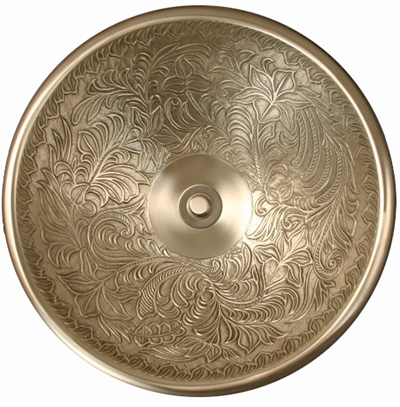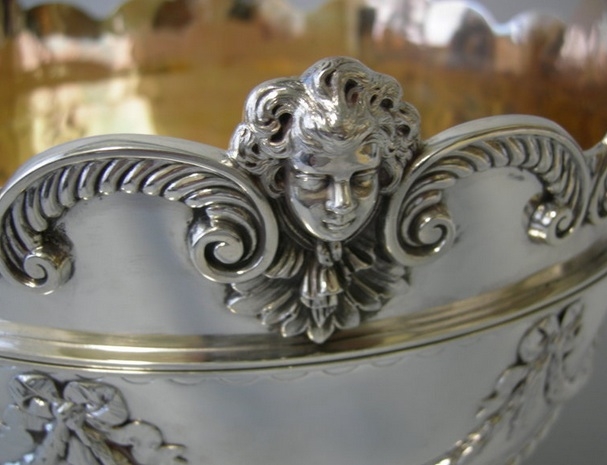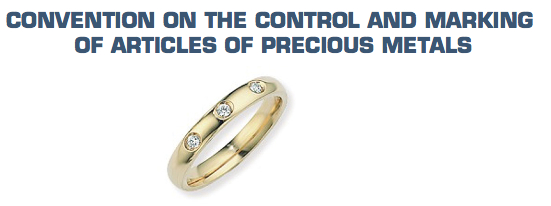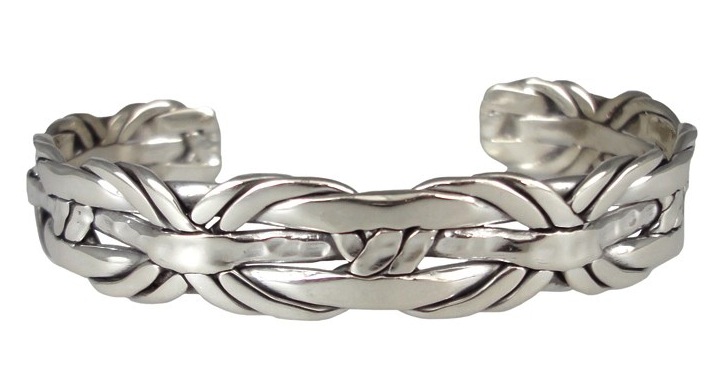White bronze is an ideal substitute for nickel and silver because of its appearance and chemical properties. It is nonmagnetic, very smooth, and virtually nonporous. It resists corrosion and breakdown. It does not tarnish and so has an advantage over silver.
It is actually not bronze, but an alloy of varying amounts zinc, tin and copper and is commonly used in jewellery as a substitute for nickel. Many years ago was used as a material for grave markers.
Despite being inexpensive, white bronze has a very attractive appearance, meaning that in certain jewellery, it can be used as the top coat. When white bronze is used as an interior barrier layer, it usually has a thickness of about 0.000039 inches to 0.0001 inches (1 to 3 microns). This is an extremely thin layer, about 1/100th the thickness of a human hair. The need to substitute white bronze for nickel, even in light of the minute amount of material used, comes from concerns about the effect of nickel on the environment.
White bronze is not used to replace silver and other metais but as a buffer between a base metal and silver and gold plating. It can also be used as an undercoat in silver-plated jewellery. Electroplating is used for these methods.
The White Bronze process has been developed to produce a bright white finish to be used as a low cost replacement to silver. It is essentially a copper-tin-zinc alloy, that is lead free with a color similar to bright/satin nickel or silver. The deposit is highly corrosion resistant, non-magnetic, has low porosity and a low coefficient of friction. It has the hardness of nickel, electrical characteristics of silver but will not tarnish under harsh conditions. It is excellent for electrical contact applications.
White Bronze is also a substitute for nickel in various applications. It may be used as a undercoat with palladium, palladium/nickel, silver or gold products. It also can be used as a topcoat as well with the above finishes. It has excellent wear resistance and a low coefficient of friction that makes it ideal for high wear applications. In addition it has superb solderability and is lead free.
Benefits of White Bronze
- White Bronze is Lead free
- Corrosion resistance
- Non-magnetic
- Electrical conductivity
- Solderable
- Extremely attractive
- Toxic free, nickel free deposit
- Excellent for medical applications as a biocidal metal layer.











